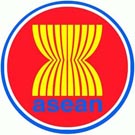Civil society questions mandate of ASEAN human rights body
 Bangkok - The establishment of a human rights body for the Association of South-East Asian Nations (ASEAN) this year will be of little worth if it has no mandate to conduct independent fact-finding missions in the region, a leading civil rights group warned Thursday.
Bangkok - The establishment of a human rights body for the Association of South-East Asian Nations (ASEAN) this year will be of little worth if it has no mandate to conduct independent fact-finding missions in the region, a leading civil rights group warned Thursday.
"The body should be able to conduct country visits where there are severe human rights violations and conduct fact-finding missions," said Yap Swee Seng, executive-director of the human rights group FORUM-Asia.
"If the body doesn't have this kind of mandate then the effectiveness of this ASEAN human rights body is questionable," he told a press conference in Bangkok.
Yap is one of 800 representatives of South-East Asian civil society groups joining the ASEAN People's Forum in Bangkok on Friday and Saturday.
The forum will present its findings and concerns to the 14th Summit of the Association of South-East Asian Nations (ASEAN) being held in Hua Hin, Thailand, on February
27 to March 1.
This year's summit will disclose the terms of reference for the establishing an ASEAN human rights body this year to promote and protect human rights in the region.
Setting up an ASEAN human rights body is an outgrowth of the ASEAN Charter, approved by the ten-nation grouping last year, which enshrined protection of human rights as a regional objective.
The charter, however, also enshrines ASEAN's diplomatic principle of "non-interference" in one another's domestic affairs, a stance that has made the grouping ineffective in dealing with gross violations of human rights committed by member-states such as Myanmar, also known as Burma.
"We are concerned that the non-interference principles in the ASEAN charter have been inherited in the terms of reference for the ASEAN human rights body," Yap said.
It is hoped that once ASEAN has set up a human rights mechanism it will be used to deal with regional challenges such as the treatment of the Rohingya boat people.
The Thai military has been accused of pushing back about 1,000 Rohingya boat people from Thailand's southern shores in December, putting them in boats without engines or sufficient food and water supplies, causing them to perish at sea.
The Rohingya, from northern Arakan State in Myanmar, have been denied citizenship by Myanmar's ruling junta who claim the Muslim minority group are migrants from neighbouring Bangladesh.
Bangladesh has also denied the Rohingya citizenship, leaving the minority group stateless, homeless and without work.
The Rohingya problem will be discussed on the sidelines of the ASEAN Summit in Hua Hin, 130 kilometres south-west of Bangkok.
Besides human rights, the ASEAN People's Forum will also discuss other regional problems such as migrant workers and unemployment in the region, the impact of the global economic crisis and the on-going construction of hydroelectric dams on regional rivers.
Their findings will be presented to ASEAN Secretary-General Surin Pitsuwan and Thai Foreign Minister Kasit Piromya on Sunday. ASEAN includes Brunei, Cambodia, Indonesia, Laos, Malaysia, Myanmar, the Philippines, Singapore, Thailand and Vietnam. (dpa)
